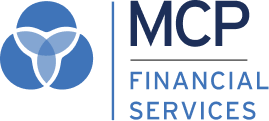Running a service business like Finance Broking can be stressful. It can be hard for the owner to be “out of the weeds”. They may need to wear multiple hats, and often decisions need to be made on your business.
Even if you are a sole operator it is important to be aware of your strengths, preferences and the gaps that may need filling.
Your Strengths and Preferences
We are all different. In the context of business, you need to “know thyself”. For example:
✓ Are you great at Sales but not so strong in managing customers?
✓ Do you struggle to get new Sales opportunities?
✓ Does your business have an active Marketing plan?
✓ Do you think there is a difference between Sales and Marketing?
✓ What are your Customers saying about you? Do you know?
✓ Do you know what the key drivers in your business are?
✓ Can you analyse the performance of the business?
You may need an objective view of where you and your business sit right now, and whether you see any opportunities to define it, refine it or change it.
Your Role in the Business
We acknowledge that business owners often do or have responsibility for a variety of operational and strategic roles in a business.
You may make decisions depending on the different capacity that you find yourself in during business. The roles and responsibilities in each area are succinct and can sometimes be in conflict.
For example, what if maximizing shareholder return means exiting a long-term referral relationship, exiting a long-term customer or geographical market?
Most Finance Brokers do not have a Board of Directors or hold Shareholder meetings which is an understandable reality. However, be mindful that will need to think and act according to multiple hats as below.
Reaching Capacity
A common challenge for growing finance broking businesses is what we call the “Single Owner Cap”.
This refers to the inability for single owner to grow beyond a certain size. This is understandable, as the volume of clients and loans increase – so does both the servicing and loan run off.
This is usually linked to the manner and structure in which the business earns income. There is a lot of good research on Stages of Business. I like the Harvard research which looks at five (5) succinct stages and traits of each as below:

For some Finance Broking Practices, this is a journey that can look something like this:
▪ Stage 1 & 2 of starting and building a business is often the easiest in terms of growth (not distracted by client maintenance/management etc.)
▪ There is a cluster of Finance Broking business at “Success” (Stage 3) that are unable to achieve “Take Off” (Stage 4).
▪ Owners reach saturation, have squeezed their operational tasks and costs as far as possible.
▪ Cannot build leverage in managing or attracting new clients at a rate that drives growth.
The Power of Leverage
Leverage can either allow a business to stay small and not be at all solely reliant on the owner, or to build a system for its growth.
The best business are the ones that “do it often, do it well”. Repeatable processes that are supported by great marketing & sales programs, systems, great internal culture and customer service but that don’t unduly rely on individual expertise at an operational level or “black art”.
There can be great leverage opportunities in these types of organisatons. Whatever the owners’ motivation, the operation will be more saleable if both the business operates without undue reliance on the owner and there is opportunity for leverage.
Succession Planning
“Your business is always for sale”. Well, maybe not but that should be the mindset of the owner because at some point you will have an involuntary or voluntary exit from your business.
It is rare that Business Owners have a clear and documented exit strategy. That may be understandable in some instances, but it is not a smart approach.
There is no exact science on this point, and the optimal time for each owner will vary based on a number of factors. One optimal time may be before you hit the Single Owner Cap, especially if you are unlikely to push through and grow the business.
It is important that as a business owner, you seek advice to work through your options for the end. This plan can be fluid, but it should be updated regularly. Again, this is where good advice is so important. Succession planning should align with other related objectives such as:
▪ Asset Protection;
▪ Estate Planning; and
▪ Taxation Planning.
For many Finance Broking Practices, their business is their biggest asset outside of property interests. By waiting too long, many of the key referral relationships can become stale, the loans age and there is generally no value to the business beyond the value of the recurring trailing commission.
More Information?
enquiry@mcpgroup.com.au

